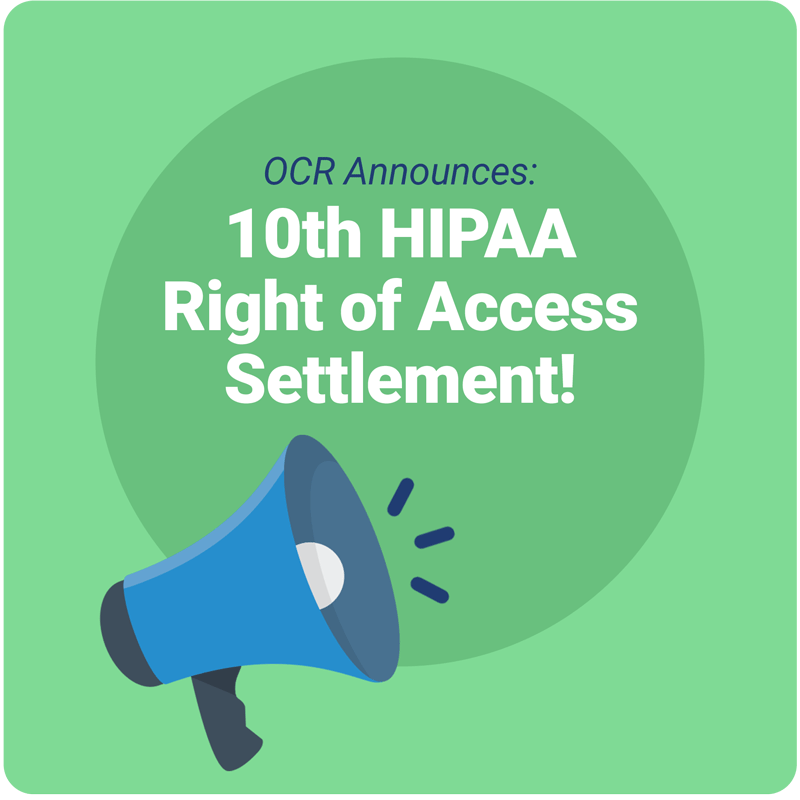
The Office for Civil Rights (OCR) wasn’t kidding when they emphasized HIPAA Right of Access enforcement last year – if you STILL don’t believe the many (so, so many) blog articles we’ve written on previous fines, maybe today’s 10th fine announcement will do the trick. Patient right of access has been a trending topic (waiting for the hashtag to trend any day now) over the past few months, and the latest settlement is just another reminder of what your practice needs to watch for.
Today’s fine goes to Riverside Psychiatric Medical Group (RPMG), out of Riverside, California who agreed to a $25,000 payout and two-year corrective action plan to settle a violation of the Privacy Rule’s patient right of access standard.
The latest settlement comes as a result of a patient complaint received just last year, in March of 2019. The complaint claimed that RPMG failed to provide access to requested medical records – even after multiple requests, OCR technical assistance after the first complaint, and a second complaint a month later. In this particular case, unlike other patient right of access fines levied thus far, RPMG claimed they didn’t provide access because the requested records included psychotherapy notes.
Psychotherapy notes include documentation of private counseling sessions, separate from regular medical records, and are able to be withheld under HIPAA law because of the nature of the records. So was the practice actually in the wrong? While psychotherapy notes CAN be withheld, HIPAA still requires:
- That the practice provide a written explanation when denying a record request (strike number one for RPMG)
- That the practice provide access to the rest of their medical record requests, excluding the psychotherapy notes (strike number 2)
Since RPMG failed to do either, they found themselves with $25,000 less in their pockets and two whole years of administrative paperwork to be completed. Even if your practice doesn’t deal with mental or behavioral health services, RPMG’s case includes some important lessons for all types of providers.
When records can’t be provided (for legitimate reasons only people) a written explanation and a copy of the records can and should be provided to the patient. No one likes to be left hanging, said best by OCR Director, Roger Severino himself: “When patients request copies of their health records, they must be given a timely response, not a run-around.”
Avoid being an enforcement victim by reviewing what your practice has in place now, and what is required when a patient requests their records. Make sure you have a designated method for patients to request records and fulfill their requests within the right time frame – within 30 days at the federal level, though it varies by state. And just in case you’re keeping score (just us?) this fine brings 2020’s running total to $13,211,500.